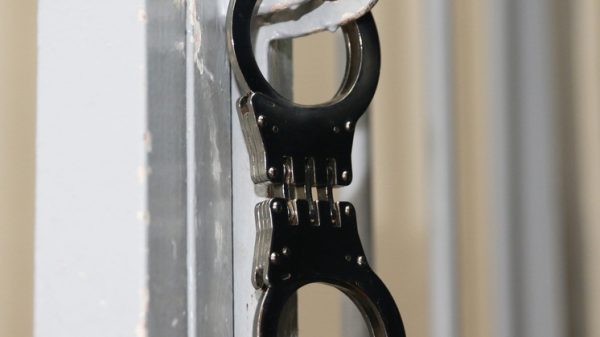 < br />
< br />
MOSCOW, March 27, Tatyana Pichugina. During the COVID-19 pandemic, two thirds of complications after vaccination turned out to be a figment of the imagination. In a new study, EU scientists have shown that fear of people in white coats, scientifically known as a nocebo effect, can lead to severe health and social consequences. How to counter this — in the material.
«Havana Syndrome»
In 2016, an undercover US intelligence agent working in Cuba began to hear a thin squeaking sound in his ears. He shared this with his colleagues, who, as it turned out, also suffered from voices and noises. Soon, a dozen diplomats and spies noticed strange symptoms — headaches, insomnia, nausea, absent-mindedness.
Everyone was sent to a private clinic to an otolaryngologist with a dubious reputation. He diagnosed: «brain injury caused by an unknown acoustic weapon.» This was later refuted by other doctors and scientists. The diplomats were examined more than once, MRIs were done, but nothing was found. However, media reported that embassy staff were injured by a mysterious microwave weapon allegedly used by the Russians. Two hundred diplomats, from China and Great Britain to Colombia, have admitted to similar problems.
Only seven years later the mystery was finally solved. Five intelligence agencies issued a clarification on March 1, 2023 that the so-called Havana syndrome is not the result of exposure to microwave weapons, but a “social construct”, in other words, mass psychosis. However, these people are not crazy; they are not making up their symptoms, explains Irish neurologist Susan O'Sullivan in an interview with Bloomberg.
«This is a nocebo effect, which is the opposite of placebo. If you warn of a health hazard, some actually will feel unwell,” O’Sullivan emphasizes. In her opinion, the “Havana syndrome” was provoked by doctors.
Who starts the virus
The term «nocebo» was proposed in 1961. At that time, clinical trials of drugs were massively introduced in medicine. For the purity of the experiment, a control group is needed — volunteers who are given a placebo instead of medicine: saline solution or chalk. Neither the subjects nor the doctors know who will receive the actual treatment. This is called a «double-blind, placebo-controlled study».
It turned out that in the placebo group, some experienced relief and even recovered, while others, on the contrary, suffered from side effects that had nowhere to come from. Scientists consider placebos and nocebos to be neurological phenomena. The first is caused by positive expectations, the second by negative ones. Nocebo is the “dark twin of placebo.” Much less has been studied.
Nocebo often accompanies clinical trials of generic drugs. So, in 2007, New Zealand decided to introduce a new drug called thyroxine, a thyroid hormone. Before this, tablets manufactured by GlaxoSmithKline were sold there; now they began to produce analogues with the same active substance. The number of side effects has increased 2000 times in a year and a half.
Charlotte Bleese from Uppsala University and Cosima Locher from the University Hospital in Zurich, authors of the book “The Nocebo Effect: When Words Kill,” cite more one example. Cholesterol-lowering statins cause side effects: muscle pain, brain fog. Studies have shown that in drug trials, up to 90 percent of negative symptoms occur in the control group.
“Part of this is the influence of the media on public consciousness. A kind of social virus is launched,” explains Bleez.
In a review published in 2018, scientists from the UK analyzed the results of experiments involving more than 250 thousand patients. Half of the side effects were in the placebo groups. When testing vaccines against COVID-19 — two thirds.
About 20 countries have followed in the footsteps of Sweden and joined the experiment in disclosing medical records to patients. One of the consequences of this is an increase in the nocebo effect, warns Bliz.
At a doctor’s appointment
«If a person was warned about the possible negative effect of a drug or he found out about it on his own, if there is no trust in the doctor’s prescriptions, the likelihood of side effects increases. This is nocebo: the occurrence of undesirable reactions in the patient due to his negative expectations from treatment that are not related to pharmacological effect of the drug,” says neurologist Ekaterina Demyanovskaya, medical expert at the Hemotest laboratory.
Anxiety and mistrust can enhance or even provoke unwanted reactions in the body, she continues. At the same time, centers that regulate the production of neurotransmitters and hormones are activated in the brain, which can cause physical symptoms, including pain, nausea, diarrhea, and weakness.
«It is important what is written in the media and social networks. Impressive people are especially susceptible to the nocebo effect people and patients with anxiety disorders. This occurs more often in women than in men. It is influenced by one’s own negative experience,” the doctor clarifies.
Doctors try to minimize nocebo. They explain in detail the need for treatment and possible side effects.
«For example, statins can really cause a negative reaction. But refusing them can have more dangerous consequences: the risk of developing cardiovascular diseases associated with atherosclerosis, including heart attack, significantly increases myocardium and ischemic stroke,” emphasizes Demyanovskaya.
A big role is played by the doctor’s intonation, his friendliness, and readiness to answer all your questions. It is necessary to increase confidence, to help the person focus on recovery, and not on fear of side effects.


























































Свежие комментарии